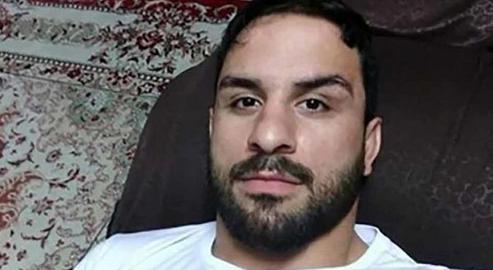Iran’s current parliament was less than two months into its new term on July 14, 2020, when despite online censorship the hashtag “#DoNotExecute" was retweeted four million times to call for the annulment of an execution order of Navid Afkari, a youth athlete from Shiraz, and two other young Iranians accused of participating in the November 2019 nationwide protests. But the appeals did not stop authorities from handing Afkari over to an execution squad.
A judiciary spokesperson has now also announced the approval of death sentences for the journalist Rouhollah Zam and the doctor and activist Ahmad Reza Jalali – prompting a fresh wave protests and #DoNotExecute posts online.
Observers of Iran’s judicial affairs say that the increase in calls for stays of execution of activists are driven by the fact that the country’s parliament is involved in approving and supporting capital punishment sentences.
IranWire surveys show that official silence, and worse, the complicity of the people’s representatives with decisions taken by repressive elements in Iran’s security and judicial establishments, not only makes officials reckless in issuing death sentences but can make them so intoxicated with power that they cause disaster.
A previous parliament, for instance, with the complicity of its pro-repression representatives, made it possible for the oppressors to commit a a tragic series of executions of activists at the Kahrizak detention center.
Parliament is one of the few institutions in Iran that, even in the closed system of the Islamic Republic, can gives voice to the sentiments and views of the nation.
Past parliaments have occasionally seen a single representatives who have taken a stand against such irresponsibility and, if possible, have challenged judges with a warning, a question, or a letter to the head of the judiciary, to at least slow the violation of the nation's rights. Recently the parliamentarians Ali Motahari, Mahmoud Sadeghi, Parvaneh Salahshouri, Gholamreza Heidari, Ghassem Mirzaei Neko, and others have objected to such rulings. But all of them were disqualified from running for parliament in the most recent elections.
The reaction of the Etemad-e Melli Party to the executions
The Etemad-e Melli Party (National Confidence Party) is one of the groupings in parliament that did not ignore the #DoNotExecute campaign. In a letter to the head of the judiciary on July 15, 2020, the party protested against the death sentence of Afkari and the other protesters and called for an end to the executions.
The letter read: "Given the extraordinary circumstances and the desire of a large part of the public to stop the implementation of such sentences, it is appropriate to review and stop these sentences, to apply Article 477 of the Code of Criminal Procedure, which is one of the special powers of His Excellency, and to organize a retrial for the defendants, in this case before the Supreme Court."
Etemad-e Melli members were later disqualified from running for the subsequent parliamentary term. The party issued a statement on January 17, 2020, saying that more than 50 of its main members had registered to run in the elections but had been disqualified.
How parliament stood by the executioners
When Iranians were shocked by the execution of Navid Afkari, Rouhollah Nejabat, an MP for Shiraz, defended the execution and said: "What has happened that so much propaganda by the enemy is seen? All the measures to create justice in the system of the Islamic Republic after the [1979] Revolution are considered as nothing. The judiciary dealt with the violators and criminals in order to bring about justice, and we should appreciate them."
Today’s parliamentarians are not silent in the issuing of political death sentences. But in defending such sentences they have paved the way for these acts to continue. This is wh y Mehdi Hajati, a member of the Shiraz City Council, asked parliamentarians: “When all Iranians say #DoNotExecute, who are you representing [by not protesting]?”
The composition of this parliament – and its complicity in capital punishment – is no accident. The engineering of elections, led by Ahmad Jannati and Abbas Ali Kadkhodai, the secretary and speaker of the Guardian Council, has been instrumental in shaping the body. And the widespread disqualification from the most recent parliamentary elections, as well as the selection of representatives who take no action but to support execution orders, is the result of the efforts of the Guardian Council's oversight bodies. If these steps had not been taken there would have been many candidates for parliament who would not have stayed silent as Iran’s judges handed down the harshest sentences and sent young men to their deaths.
visit the accountability section
In this section of Iran Wire, you can contact the officials and launch your campaign for various problems






















comments